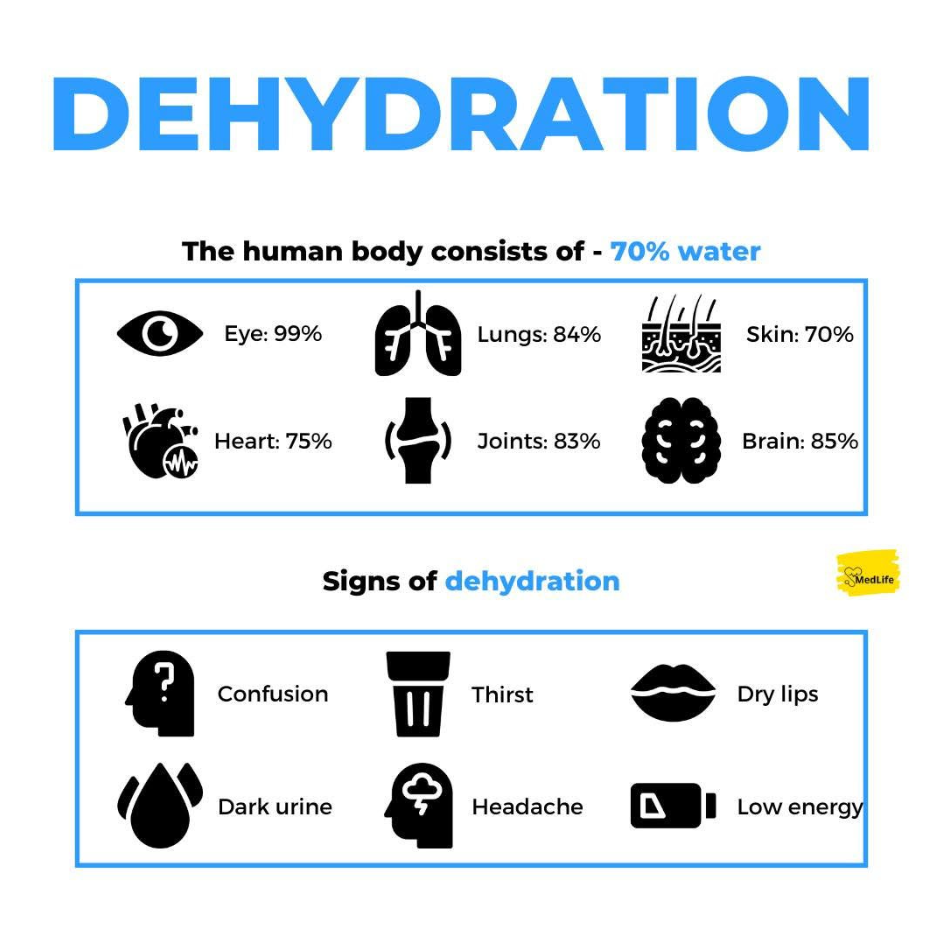Dehydration doesn’t just affect your physical performance—it can impair cognitive abilities like memory, alertness, and decision-making. Over time, chronic dehydration increases your risk for:
-
Urinary tract infections
-
Kidney stones
-
Digestive issues
-
High blood pressure
-
Heat exhaustion or stroke
In children and elderly individuals, dehydration can escalate quickly and become a medical emergency.
🥤 How Much Water Do You Really Need?
While the “8 glasses a day” rule is popular, your needs depend on:
-
Body weight
-
Physical activity
-
Climate
-
Diet
-
Health status
A good general guideline:
Drink half your body weight (in pounds) in ounces of water daily
Example: If you weigh 160 lbs → aim for 80 oz (around 2.3 liters) of water per day.
💡 Tips to Stay Hydrated
-
Start your day with a glass of water before coffee or tea.
-
Carry a reusable water bottle and refill it throughout the day.
-
Flavor your water with lemon, cucumber, or mint if plain water bores you.
-
Eat hydrating foods like watermelon, cucumber, oranges, and leafy greens.
-
Set reminders or use apps to track your intake.
-
Drink before you feel thirsty, especially during hot weather or workouts.
✅ Final Thoughts
Water is not just a thirst-quencher—it’s the lifeblood of your body’s most vital functions. Recognizing the signs of dehydration early can protect you from fatigue, illness, and long-term health issues. Make hydration a daily habit, not an afterthought.
Remember:
If you’re feeling tired, moody, unfocused, or unwell… reach for water first.
Your body might just be calling out for its most essential nutrient. 💧
